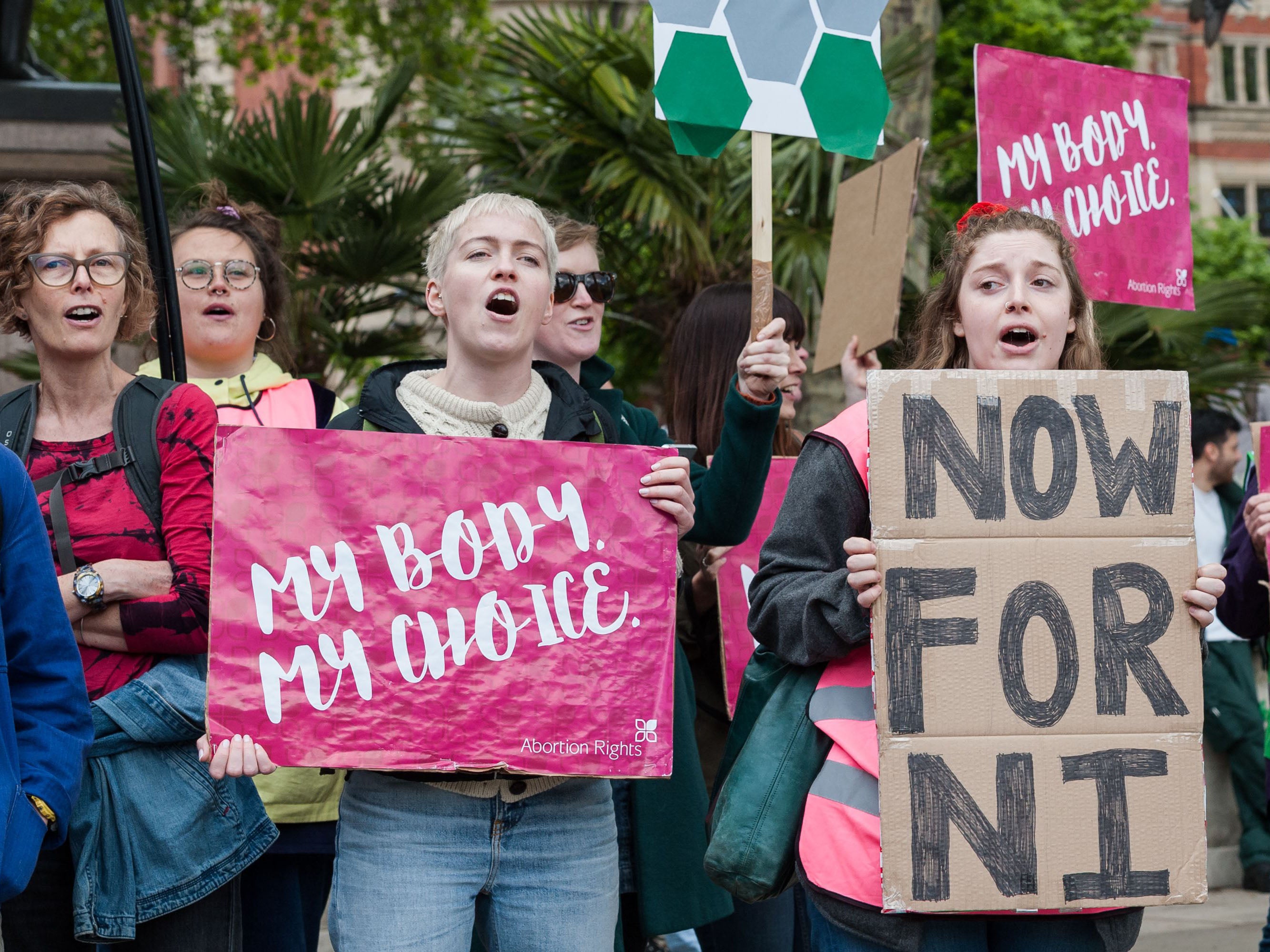Northern Ireland women turning to backstreet abortions and some 'have even attempted suicide' over lack of services
Exclusive: ‘This harm cannot be overstated,’ says Royal College of Obstetricians and Gynaecologists’ letter

Your support helps us to tell the story
From reproductive rights to climate change to Big Tech, The Independent is on the ground when the story is developing. Whether it's investigating the financials of Elon Musk's pro-Trump PAC or producing our latest documentary, 'The A Word', which shines a light on the American women fighting for reproductive rights, we know how important it is to parse out the facts from the messaging.
At such a critical moment in US history, we need reporters on the ground. Your donation allows us to keep sending journalists to speak to both sides of the story.
The Independent is trusted by Americans across the entire political spectrum. And unlike many other quality news outlets, we choose not to lock Americans out of our reporting and analysis with paywalls. We believe quality journalism should be available to everyone, paid for by those who can afford it.
Your support makes all the difference.Women have been forced to turn to backstreet abortions and some have even attempted suicide over the lack of services available for pregnancy terminations in Northern Ireland, leading health professionals have warned.
The Royal College of Obstetricians and Gynaecologists (RCOG) has criticised Robin Swann, the minister of health, for failing to commission abortion services despite the government's legal obligation to do so.
Abortion became legal in Northern Ireland last October after MPs in Westminster voted last year to give women the right to terminate their pregnancy — marking an end to the procedure being banned in almost all circumstances, including rape and incest.
The RCOG, which has over 16,000 members who work in female sexual and reproductive health and pregnancy, has warned women are being pushed into carrying on with unwanted pregnancies in a letter seen exclusively by The Independent.
“This harm cannot be overstated,” the letter states. “There have already been at least two cases of attempted suicide by women in Northern Ireland unable to access care. We are also aware of a substantial increase (plus 28 per cent) in women turning to unregulated methods of abortion during the pandemic, which demonstrates access to regulated services remains an issue, and places these women at risk.”
The letter warns the provision of abortion services for women who are more than 10 weeks pregnant is non-existent in most areas.
While abortion is legal for the first 24 weeks of pregnancy in England, it is only permitted for the first 12 weeks in Northern Ireland.
“Northern Ireland is currently among the areas with the highest Covid-19 infection rates in the UK and asking women to travel further than necessary to access care needlessly risks exposure to, and transmission of, the virus,” the letter, which was sent on Monday, states.
It adds: “As an organisation, we understand that there are differing views on abortion across society. However, abortion care is already decriminalised, has a legal framework, and is being provided by trusts in Northern Ireland. We would therefore question what aspect of the commissioning of these already operational (albeit fragile) services, provided under an already established legal framework, would be controversial.”
Grainne Teggart, Northern Ireland campaigns manager for Amnesty UK, told The Independent Mr Swann’s failure to commission abortion services is having a “hugely detrimental impact” on both the women who need abortions and the health professionals who provide it.
She added: ”At a time when he should be supporting women and our healthcare professionals by ensuring these services are properly resourced, he has instead enabled a deeply troubling situation where we have a postcode lottery for early medical abortion.
"As a direct consequence of his failings, we are seeing health services becoming increasingly more fragile, especially as they are already feeling the strain of operating under the pressure of the Covid-19 pandemic.
“The Northern Ireland Office must also step up by providing telemedicine services if the Department of Health continue to fail, and by ensuring women do not have to go online to purchase pills or travel during a pandemic which, for many, is neither a safe nor viable option."
It comes after a damning report by Amnesty released last week found women in Northern Ireland are not able to have abortions as they grapple with a postcode lottery of services.
Campaigners said a third of Northern Ireland has been left with no early medical abortion service due to the health minister failing to commission or fund critical services.
Women are unable to make the trip overseas to England - where there is a funded abortion service up and running - in the wake of the public health emergency.
A long-awaited new legal framework around abortions took effect in Northern Ireland from the end of March but its rules on terminations have come under criticism from campaigners who previously told The Independent they are not “fit for purpose” and will put vulnerable women and girls at grave risk.
Cathie Sheils, who works for Abortion Rights Campaign, previously told The Independent: “It is important to emphasise that there are safe reputable websites out there selling abortion pills such as Women on the Web and Women Help Women. But on the very rare and unlikely chance of someone having an adverse reaction, they should go to a doctor. However, it is statistically safer for people to take abortion pills than viagra.”
If you are struggling to cope, please call Samaritans free on 116 123 (UK and ROI), email jo@samaritans.org or visit the Samaritans website to find details of the nearest branch.
If you are based in Northern Ireland and have been affected by the issues raised in this story, you can speak to someone in confidence at the Abortion Support Network by calling 07897 611593 or emailing info@asn.org.uk or you can ring the British Pregnancy Advisory Service on 0333 234 2184. If you are in the Republic of Ireland, you can contact the MyOptions helpline on 1800 828 010 or on 0035316877044 from Northern Ireland.



Join our commenting forum
Join thought-provoking conversations, follow other Independent readers and see their replies
Comments